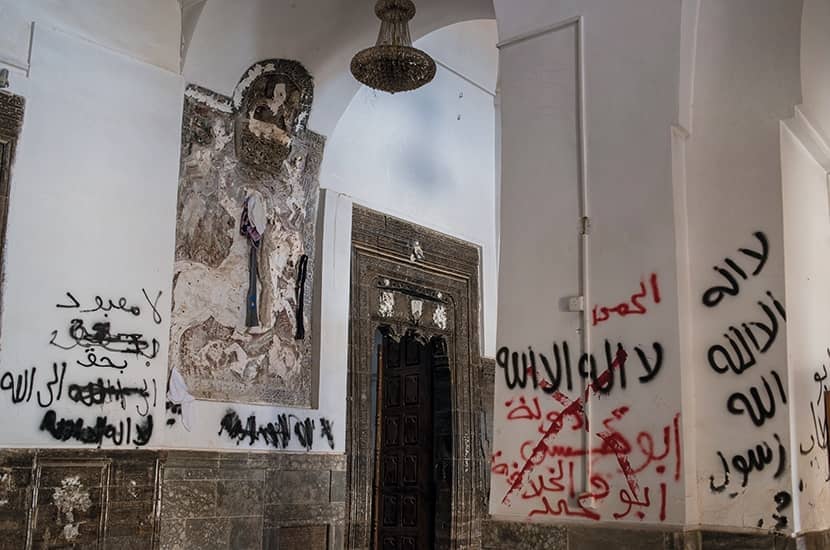Janine di Giovanni’s book begins in a Paris apartment during the first lockdown. She’s at a friend’s home, which she leaves for the odd shopping trip wearing a homemade mask and rubber kitchen gloves. Covid has made her anxious and she worries that we may lose things about our way of life forever. They need to be written down so we don’t forget. As she thinks about how her faith has comforted her during the pandemic she decides to tell the story of Christians in the Middle East who have experienced troubles of a different kind. She feels that Christianity is vanishing there, and if we don’t make a record of it, it will be lost.
It is springtime in Paris; the trees ‘blossom and the buds scatter on the sidewalks like stars’; but elsewhere the world isn’t so peaceful. Di Giovanni is a journalist who specialises in war zones, so she knows the score; and she keeps being drawn back to what’s happening in Iraq.
When the Americans deposed Saddam, they removed the protection the Christian minority had enjoyed
She describes her first trip there in 2002 when she toured the country with her trusty driver, Munzer, and her translator, Reem. The American invasion was imminent and Saddam Hussein’s administration was nearing its end. Everyone knew, it seemed, that the arrival of the Americans would do more harm than good, and that minorities would be at great risk in the aftermath.
At the time, things were bad, but reasonably stable. Age-old communities, some speaking Aramaic, the language of Jesus, lived in relative peace and security. These are the lands of the biblical prophets and the stories of the Old Testament, and much of what was, was still there. It was this connection to ritual, shared history and storytelling that gave the Middle East what was most precious — a diversity of peoples.
The story Di Giovanni tells is surprising. It would be easy to point to extreme Islamism as the sole cause of the decline in Christian numbers. But that’s not quite the case. When the Americans deposed Saddam they also removed the protection the Christian minority had enjoyed. Of course that protection came with strings attached. Christian communities were caught between opposing factions, especially in Gaza and Egypt. But the American invasion of Iraq disrupted civic order, creating the conditions for Isis’s later genocide.
And there’s a further dimension. American evangelicals have been keen to support persecuted Christians in Iraq and elsewhere and offer them a home in the US. This has led to huge numbers emigrating, leaving an even more vulnerable few in their homelands. The figures are pitiful: in Gaza, for instance, there were 46,000 Christians in the early 1950s. Now, with Hamas in charge, perhaps only 1,000 remain.
The Vanishing, though, isn’t just about the end of Christianity in the Middle East. There are extraordinary examples of people still worshipping as the violence escalates, and Di Giovanni has a fine way of capturing landscapes and people. In a monastery outside the ruined city of Mosul, a place where 100,000 Christians lost their homes, the priest and congregation treat her to a meal. A woman called Niser explains that ‘it is to celebrate that we still exist.’
On her last trip to Iraq, after Isis has been defeated, Di Giovanni finds herself in Nineveh, at an ancient Chaldean monastery. Devastation is all around, with villages empty and ransacked. Then she hears singing. An Orthodox priest and his wife are chanting in Aramaic in front of the altar with a single lit candle. The priest laments that even in such an ancient place of pilgrimage Christianity is in crisis: ‘If something is demolished, it can never again be rebuilt.’ As the sun sets and darkness falls Di Giovanni gets back on the road, leaving the priest and his wife to their prayers.






Comments